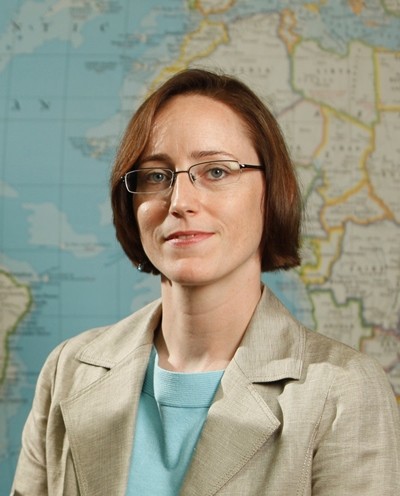Upticks in political tolerance and participation in local government stand out in a mostly downbeat batch of evidence about the state of democracy in the Americas released today by Vanderbilt’s University’s Latin American Public Opinion Project (LAPOP) in Miami.
The findings were released in a report launched at Florida International University during a mini-conference that shares the title of the report: “The Political Culture of Democracy in the Americas.” The report is based on survey data collected by LAPOP for the 2016–17 round of its biennial AmericasBarometer study.
The results relay discouraging news on issues including trust in the media, human rights, political corruption, crime victimization and police responsiveness. Overall, support for democracy has declined almost nine percentage points in the Latin America and Caribbean region since the 2014 AmericasBarometer.
Democracy is on the defensive in the Americas and around the world,
“Democracy is on the defensive in the Americas and around the world,” said Elizabeth Zechmeister, Cornelius Vanderbilt Professor of Political Science, director of LAPOP at Vanderbilt and a co-author of the report. “In a number of places across the Americas, countries have been coping with security and economic crises and scandals emanating from governments and parties.
“Among the mass public, skepticism is brewing over the extent to which democracy can succeed in delivering on citizens’ expectations and improving the quality of their daily lives.”
LAPOP
LAPOP, hosted by Vanderbilt University, is the premier academic institution carrying out surveys of public opinion in the Americas, with more than 40 years of experience. LAPOP’s AmericasBarometer is the only scientifically rigorous comparative survey project that covers 34 nations in the Americas. More than 43,000 interviews comprise the 2016–17 AmericasBarometer. The surveys are based on national sample designs and conducted with the assistance of partners across the region. Core support for LAPOP is provided by USAID.

Is democracy the best?
Support for democracy fell between 2014 and 2016–17, from 66.4 percent to 57.8 percent, the lowest level of support for democracy detected in the AmericasBarometer, which began in 2004. The proportion of the public supportive of democracy ranges from a low of 48.4 percent in Guatemala to a high of 82.4 percent in Uruguay. Democracy is strongest in some of the oldest and most stable democracies polled, such as Uruguay, Canada, Argentina, the United States and Costa Rica, while it is notably lower in countries that have recently experienced democratic, political or security crises (Guatemala, Paraguay, Mexico, Haiti and Honduras).
“Generally, the most educated and wealthiest citizens—arguably those who most benefit from the status quo system—report support for democracy at higher rates,” said Mollie J. Cohen, a postdoctoral research fellow at Vanderbilt and a co-author of the study. “Women are slightly less likely to report support for democracy than men, and those living in rural areas are somewhat less supportive of democracy than urban residents.”
As individuals get older, they are more likely to report support for democracy. While less than 54 percent of those aged 26 to 35 support democracy, 66 percent of those 66 and older are supportive.
Participation in local government
To judge the level of involvement citizens have in their communities, the survey asked if respondents had attended a meeting involving local government in the preceding year. Just over 13 percent answered that they had, 3.5 percentage points higher than 2014 and the highest level of meeting attendance since the poll’s inception.
The rates of citizen participation vary widely. While in past rounds Haiti often had the highest participation rate, Venezuela now tops the list, followed by the Dominican Republic and Brazil.
“These rates are likely related to political and economic unrest within those countries,” said Gregory J. Love, associate professor of political science at the University of Mississippi and a co-author of the study. “Venezuela and Brazil, in particular, have seen substantial increases in political strife over the past 24 months. Haiti’s fall from the top of the list to the middle also may represent a return to normalcy amidst the recovery and reconstruction following the massive destruction caused by the 2010 earthquake.”
As in past rounds of the AmericasBarometer, Costa Rica, Panama and Mexico have some of the lowest participation rates.
Dealing with corruption
Respondents’ experiences with corruption were measured by asking if they had been asked for a bribe in the previous 12 months. One in five said they had been asked to pay a bribe. Tolerance for corruption has been steadily increasing in the Americas since 2010.
Responses to this question vary greatly across nations. In some countries, such as Bolivia, Haiti and Paraguay, more than 30 percent of respondents reported having been asked to pay a bribe in the prior year. In others, Chile and Uruguay, for example, the proportion who reported having been victims of corruption is in the single digits.

“Corruption victims typically think that corruption is more widespread among the politicians in their country,” said Vanderbilt’s Noam Lupu, associate professor of political science, associate director of LAPOP and a co-author of the study. “They also tend to be more tolerant of corruption.”
Freedom to express political opinions
Because freedom to express political opinions is particularly important in a democracy, the AmericasBarometer asked whether citizens feel free to express their political opinions without fear. On average across all of the Americas, 54 percent believe that there is very little freedom of political expression in the Americas, 32 percent believe there is sufficient freedom and 14 percent believe there is too much of this type of liberty.
Perceptions of deficits in liberty are comparatively low in the United States and Uruguay, where 19 percent and 23 percent, respectively, feel that there is very little freedom to voice political opinions. In a dozen other nations—Panama, Peru, Brazil, Colombia, Jamaica, Ecuador, Mexico, El Salvador, Bolivia, Guatemala, Venezuela, and Honduras—more than half of respondents feel there is little freedom to voice political opinions.
“It is noteworthy to view these results in light of the fact that Mexico, Colombia and Guatemala are three of the countries that have experienced extraordinarily high levels of threats and violence targeted at individuals associated with reporting on politics,” Zechmeister said.
Human rights
Sixty-four percent of those polled report that there is very little protection of human rights in their country. Just 27 percent report that there is a sufficient level of protection of human rights, and 9 percent report that there is too much.
More than 70 percent of people in 10 nations—Haiti, Jamaica, Venezuela, Honduras, Colombia, Bolivia, Peru, El Salvador, Mexico and the Dominican Republic—report that human rights aren’t protected enough in their country. Canada and the United States are the leading countries where citizens feel their human rights are protected.
“In the vast majority of cases (all but Canada, the United States, Uruguay and Costa Rica), more than 50 percent of the population reports that there is a deficit in human rights protection in their country,” said Zechmeister.
Life satisfaction
Since 2004, the AmericasBarometer has asked citizens in varying countries to rate their general level of satisfaction with their lives.
Costa Rica led the Americas in life satisfaction for 2016–17, scoring 84.5 on a scale of zero to 100. Haiti scored the lowest at 54.3, and the United States was one of the poorest-scoring nations at 69.3.
“Most countries show fairly high average levels of life satisfaction, with scores between 70 and 84,” Love said. “In contrast to previous studies, there was no evidence that national wealth is linked to average life satisfaction in a country. This is highlighted with the United States being near the bottom of the chart and some of the poorest countries in Latin America—Guatemala and Nicaragua—near the top.”
Why are people getting engaged with government?
The 2016-17 AmericasBarometer reveals that an increasing number of citizens are interacting with their government.
“The report finds a clear uptick in participation in local government and community meetings, and increased trust in local government,” Zechmeister said.
But it’s not clear why.
“As national politics become more contested and confrontational, citizens may become more politically engaged in their communities and feel more proximate to their local governments,” Love said. “This is both hopeful, as it indicates greater engagement at the level of government most proximate to citizens, and worrisome, since it is occurring because national-level crises in democratic governance are driving the engagement.”